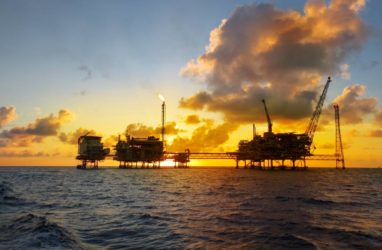Santos has been given final approval to begin production at Australia’s dirtiest offshore gas field in a decision that has coincided with Earth Day 2025. The $5.8bn Barossa offshore gas project lies off the remote Northern Territory coast and is largely recognised as Australia’s dirtiest offshore gas project, averaging 18% carbon dioxide content across the field.
This is a higher concentration than developments of similar size and scale, and has prompted critics and opponents to describe the project as a “carbon factory” and a “carbon bomb”. The National Offshore Petroleum Safety and Environment Management Authority (NOPSEMA) announced on Tuesday that it would . Santos can now begin production at the Barossa field, approximately 300km north-northwest of Darwin, and begin piping the gas through a 262km pipeline on the seafloor to Darwin.

It is anticipated the project will generate more than 300 million tonnes of climate pollution over its 25-year lifetime. In its most recent quarterly report, Santos said it expects the Barossa project to enter production by the end of the year, with work 95.2% complete.
Four wells have been drilled, a fifth suspended and drilling on a sixth well is in process. The Barossa project has been subject to at least two significant lawsuits, and , involving separate challenges by Indigenous people to the process followed by the oil company. Though Santos lost the first, it won the second.
Kirsty Howey, Executive director of the Environment Centre NT described Barossa as “one of the dirtiest gas fields in Australia”, saying that “if Barossa was a litmus test for the reformed Safeguard Mechanism, that policy has failed.” “This project will still be emitting carbon pollution in 2050, when the world is meant to be at net zero,” she said. “It is nothing short of a disaster for our climate that the Barossa project has been allowed to go ahead.
” “This approval, in the middle of an election campaign, just goes to show the failure of climate policy in Australia to ensure the necessary phase out of fossil fuels.” Under Labor’s reformed Safeguard Mechanism, Barossa would need to reduce its emissions overtime. It remains unclear how the company will offset emissions under the project.
The federal Coalition has pledged to make it easier for oil and gas companies to develop large-scale gas projects if elected. The Australian Conservation Foundation’s Gavan McFadzean said the project “should never have been given the greenlight”. “Barossa is a massive climate bomb that will produce more climate pollution than usable gas,” McFadzean said.
“Despite our repeated requests, Santos has failed to adequately explain to ACF how Barossa will comply with the safeguard mechanism or provide a proper assessment of how the greenhouse gas emissions from Barossa will affect Australia’s environment.” Santos has suggested carbon, capture and storage (CCS) may be used at its depleted Bayu Undan gas field , it did not address questions about the interaction between these projects. When asked by the Australian Conservation Council during consultation about the potential for the project to increase the risk posed by climate change, Santos said “there are limitations to linking emissions from the Activity to any specific climate change impacts.
” “Santos invited ACF to provide further information regarding how it is able to undertake an analysis that links climate change impacts from the Activity to specific environments or ecosystems,” it said. Tooni Mahto, Australian Marine Conservation Society campaigns director, said the project failed “every test” with its pipeline passing 7km of the Tiwi Islands and the Oceanic Shoals Marine Park, a protected area home to endangered marine species. “This is not just any patch of ocean—this is a habitat for marine life that cannot be replaced,” Mahto said.
“Seismic testing, construction and increased industrial activity put immense pressure on these fragile ecosystems.” The International Energy Agency said in 2021 that limiting global heating to 1.5C as set out in the Paris agreement meant there could be no new oil, gas or coal investment beyond 2021.
Earth Day is marked on 22 April, with the annual event first organised in 1970 by environmental activists in the US following the 1969 Santa Barbara oil spill..
Environment

Santos wins approval for $5.6bn “climate bomb” gas development from regulator

Santos has been given final approval to begin production at Australia’s dirtiest offshore gas field in a decision that has coincided with Earth Day 2025.The post Santos wins approval for $5.6bn “climate bomb” gas development from regulator appeared first on RenewEconomy.















